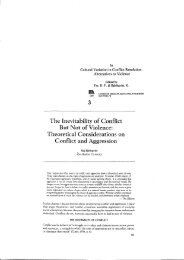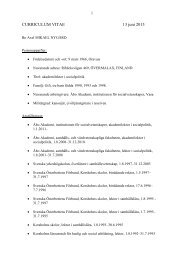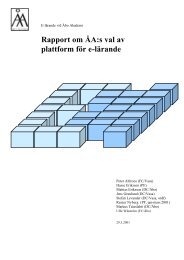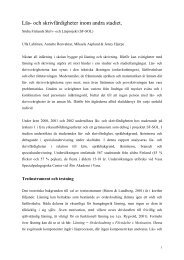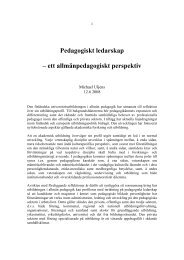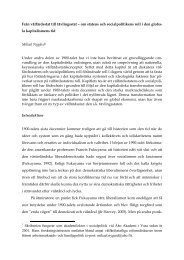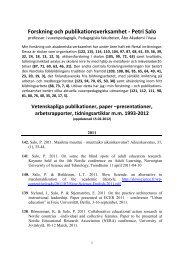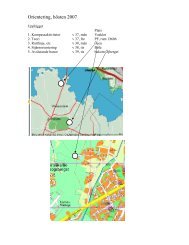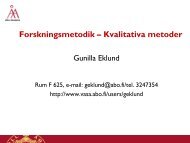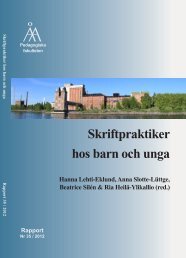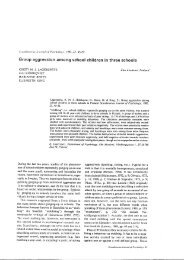Parties, Candidates and Citizens On-Line - Åbo Akademi
Parties, Candidates and Citizens On-Line - Åbo Akademi
Parties, Candidates and Citizens On-Line - Åbo Akademi
Create successful ePaper yourself
Turn your PDF publications into a flip-book with our unique Google optimized e-Paper software.
goals, organization types or target voters. This is further indicated through the noted<br />
significant correlations between scoring highly on the labour input scale <strong>and</strong> higher scores<br />
in three out of four website content scales. Taking the inconclusive findings concerning<br />
the influence of party traits on their opinions concerning the importance <strong>and</strong> use of their<br />
website into consideration, this finding is interesting. Even if party size did not appear to<br />
influence the parties’ ‘inside view’ of their website, it nonetheless appears to restrain what<br />
the parties do with their website (cf. Gibson et al. 2003a, 50; Löfgren 2000, 60; Nixon et<br />
al. 2003, 240).<br />
In conclusion, what are the lessons learnt form this study regarding the plausibility of the<br />
so-called actor constructivist view <strong>and</strong> the role of the political parties in shaping their use<br />
of party websites? First <strong>and</strong> foremost, the article has served to demonstrate that<br />
systematic empirical test of how the character of political parties are linked to how they<br />
look upon <strong>and</strong> use their websites are hard to conduct. Many of the theoretical<br />
circumstances usually regarded as important to party conduct are complicated concepts<br />
which are hard to operationalize for empirical research. Consequently, the knowledge<br />
gained through such analyses must be regarded as tentative, as providing indications<br />
rather than final answers. Secondly, while some of the Finnish parties’ opinions<br />
concerning the importance <strong>and</strong> use of their websites, <strong>and</strong> also the actual content of the<br />
websites, can be traced to party characteristics, the study has demonstrated the difficulty<br />
of generalizing from such specific findings. Thus, to better underst<strong>and</strong> how ICTs will be<br />
implemented by political parties, one should indeed take the influence of the users of the<br />
technology into account (Gibson et al. 2003b, 86-90; Löfgren 2001, 23-30), but one should<br />
not assume that the findings concerning one party are per se applicable to other comparable<br />
parties. Thirdly, in influencing the content of party websites, it appears as if size <strong>and</strong><br />
associated resources play an important role. In light of this finding, money seemingly does<br />
‘talk’ when it comes to party websites (cf. Gibson et al. 2003a, 50; Margolis et al. 2003, 57-<br />
58). Therefore, in conclusion, the actor-constructivist view appears to be very actor-specific<br />
when it comes to the parties’ opinions regarding their websites, <strong>and</strong> quite resource-dependent<br />
when it comes to the construction of party websites.<br />
***<br />
105



